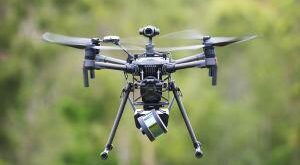At the World Economic Forum’s meeting in Davos, the Advanced Drone Operators Toolkit – a user-manual for governments wanting to scale drone delivery – was released. This open source resource is a collection of lessons learned, a collaboration with 10 civil aviation authorities from five continents, 8 international government organizations and 23 privat companies.
The Toolkit will be tested soon, as the state of Andhra Pradesh in India plans to use the program to implement a state-wide program of medical drone delivery.
The following is excerpted from a World Economic Forum press release:
The State Government of Andhra Pradesh announced at the World Economic Forum’s Davos Summit 2019 that it will start testing the policy frameworks developed in the newly released Advanced Drone Operators Toolkit to enable state-wide drone delivery operations.
“Andhra Pradesh is proud to be the first government partner to implement the Advanced Drone Operations Toolkit,” said Lokesh Nara, Minister for Information Technology and Rural Development in Andhra Pradesh. “We look forward to leveraging the insights from the toolkit to implement a drone delivery program that will bring key medical supplies to communities across our State.”
The open source guide from the World Economic Forum, the International Organization for Public-Private Cooperation, was also launched at the Annual Meeting 2019 in Davos. It was developed after extensive collaboration with the governments of Rwanda, the government of Switzerland and leveraging the work of the Drone Innovator’s Network (DIN). It is the first user manual for governments looking to roll out socially impactful, advanced drone operations.
This open source collection of lessons-learned was designed to help governments overcome the hurdles of implementing drone regulations and accelerate access to airspace, while maintaining safety and security. It also includes specific steps for governments, interested in implementing similar programmes, to consider.
“Safe, clean, inclusive and scaled drone use has become the goal of many nations,” said Harrison Wolf, report author and project lead at the Forum’s Centre for the Fourth Industrial Revolution. “Now, governments can learn from the real-world success of world leading drone delivery projects in Africa and Europe to develop their own national oversight. Through comparative analysis of shared lessons, learned by governments and private players, this toolkit means governments don’t have to start from scratch and can begin societally important, socially responsible operations. We are really looking forward for the initializing of the pilot project in India.”
…The stories and information were captured first-hand by the World Economic Forum. The Drones and Tomorrow’s Airspace team spoke directly with policy-makers, entrepreneurs, regulators and technical experts who have fundamentally shifted the dialogue from what “may” be possible to what “is” possible, in a very short time. Insights and recommendations from the most successful projects outline what it takes to launch and oversee advanced drone operations.
New airspace regulations
It also introduces governments all over the world to a new approach to oversight created by the World Economic Forum Drone and Tomorrow’s Airspace community, the Performance Based Regulations (PBR). Using PBR, airspace can be accessed by any unmanned aircraft on a mission-specific basis: the government specifies the safety standard of the mission, and the drone operators specify how they are going to meet it. This regulation is agile. It cuts the time to access airspace and expands the range of possible applications while enabling the government to keep up with the rapid development of technology.
Rwanda’s implementation of PBR for all category of unmanned aircraft led directly to an increase in operations for its drone ecosystem, promoted expansion of domestic industry participants and will support the planned establishment of the upcoming drone operations decanter (DOC) activities.
About the Centre for the Fourth Industrial Revolution Network
The Centre for the Fourth Industrial Revolution Network brings together Governments, leading companies, civil society and experts from around the world to co-design and pilot innovative approaches to the policy and governance of technology. Its vision is to shape the development and use of technology in ways that maximize the benefits and minimize the risks. The network develops, implements and scales up agile and human-centred pilot projects that can be adopted by policy-makers, legislators and regulators worldwide.
Miriam McNabb is the Editor-in-Chief of DRONELIFE and CEO of JobForDrones, a professional drone services marketplace, and a fascinated observer of the emerging drone industry and the regulatory environment for drones. Miriam has a degree from the University of Chicago and over 20 years of experience in high tech sales and marketing for new technologies.
Email Miriam
TWITTER:@spaldingbarker
Subscribe to DroneLife here.
https://dronelife.com/2019/01/28/the-advanced-drone-operators-toolkit-offers-a-manual-for-governments-to-scale-drone-delivery/
 Unmanned Aerial Vehicle The latest drone news
Unmanned Aerial Vehicle The latest drone news




